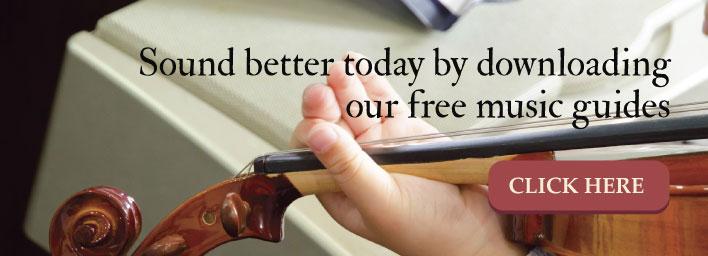Which Careers Are Good for Violin Players?

Students who are committed to music and want to extend their playing into a full-time career are often stifled by what may seem to be a lack of opportunities for those holding music degrees. Traditional ideas hold to the concept that the only professional options for music students involve either teaching or performing in some capacity. And, the best is often touted as a combination of both; having a lucrative personal instructor business while also playing in a group ensemble. However, that simply isn’t the case. There are tons of prospective ways for earning your living with a music degree in violin, you just need to know where to look and how to apply your expertise.
This list of career possibilities for violin players can give you some ideas about the opportunities available in today’s marketplace. Keep in mind that some additional skills sets might be required (such as basic familiarity with computers and people skills), but in general, your degree will provide everything you need to get started in one of these musical careers right after graduation.
Professional Musician
The list must start with this career because if it’s been your lifelong dream to play professionally, finding a way to accomplish that will be your goal. Yet, even if you didn’t make the cut during an orchestra audition, there are still plenty of ways to earn your living as a musician.
Violinists are in demand to perform at weddings, anniversaries, and similar gatherings, but there are also corporate events and other venues who need professional musicians. If you choose this route, make sure to develop a detailed business plan and sell your service using entrepreneurial best practices and other marketing techniques to ensure steady work.
Music Educator
If your enthusiasm for playing the violin includes a real desire to inspire that love in others, then choosing to become a music educator may be the best career path for you. However, grade school educators aren’t usually lauded for their high income - although the personal rewards are totally worth it, if that’s where your passion lies.
Lecturers, assistant and associate professors, and professors teaching at the collegiate level typically earn much higher salaries.
A&R (Artist and Repertoire) Administrator or Representative
These individuals are responsible for scouting out talent for record companies in order to sign new contracts. Your degree in music makes you an eligible candidate for these jobs, but depending on your location, it may be a difficult job to procure locally.
Coordinator/Director (Minister) of Music
Individuals in this type of position conduct the choir and arrange the music performed and played each week during worship services. However, the duties often extend into the community as well. Much of your time in this career will involve reaching out to others, and the music you orchestrate has a very positive influence on those who hear it. Indeed, working in some musical capacity in a religious setting is often extremely rewarding.
Clinician for the Alexander Technique
This is a profession that is becoming better known as the benefits of normalizing the tension throughout the body, especially while playing or performing, are better understood. Knowledgeable clinicians are often highly sought for speaking engagements and other professional venues, but ideally, you’ll be able to help performers avoid the debilitating health problems that can result from poor muscle management. Indeed, for overall health, many people (not just actors and musicians) are seeking out specialists who are trained in the Alexander Technique.
Agent
As an agent, you would work to book gigs for artists and bands, build relationships with businesses that feature live music, and either work directly with other musicians or a management company. Working in this capacity in the music industry offers an exciting career, as well as an occasional freelance gig of your own, if you’re so inclined.
Composer
Playing the violin and earning a degree in music will equip you for a career as a composer. Whether that career takes the form of developing original film and television music, background music for video games or marketing advertisements, this field is very expansive and offers a number of commercial opportunities. Essentially, similar to a private instructor, you would freelance your service, so it pays to prepare if you are interested in this type of profession.
App Developer/Consultant
This is an area that is recently growing by leaps and bounds. Music apps and software that help new students learn the techniques of playing the violin, composition, and other activities are gaining in popularity. IT professionals and developers aren’t always equipped with the musical expertise needed to properly build their ideas, so they hire consultants who are. Or, companies will hire experts to help brainstorm new apps and software, or pinpoint ways to improve current ones.
As you can see, there are opportunities for violinists in a number of professional fields, but this list has only scratched the surface. Your experience and expertise on the violin is in high demand with a number of companies, and when you freelance your ability, you can discover even more options. For a comprehensive list of positions available, visit Careers in Music.

